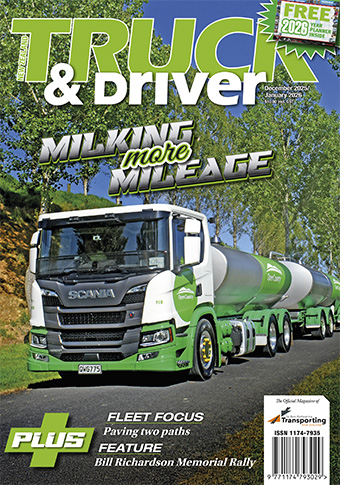Ia Ara Aotearoa Transporting New Zealand News


RTF takes roadside drug testing advocacy to Parliament
The Road Transport Forum recently appeared before a Parliamentary Select Committee to speak about RTF’s support for roadside drug testing as part of proposed new legislation.
The Transport and Infrastructure Select Committee heard that RTF has a desire to improve road safety for all road users – and that it believes a more sophisticated testing regime to identify and deal with impaired drivers is necessary to do that.
“As professional drivers, truck drivers have to meet a number of laws, rules and regulations – but other road users don’t come under that scrutiny,” RTF chief executive Nick Leggett told MPs.
“Best industry practice is that truck drivers have three forms of drug testing – pre-employment, random during their employment, and post any kind of incident on the road or in the workplace – and we believe it’s time for a minimum regime to cover all drivers.”
RTF supports a comprehensive roadside testing regime for drug impairment, whether that impairment arises from recreational drug use or prescription pharmaceuticals.
...The Road Transport Forum recently appeared before a Parliamentary Select Committee to speak about RTF’s support for roadside drug testing as part of proposed new legislation.
The Transport and Infrastructure Select Committee heard that RTF has a desire to improve road safety for all road users – and that it believes a more sophisticated testing regime to identify and deal with impaired drivers is necessary to do that.
“As professional drivers, truck drivers have to meet a number of laws, rules and regulations – but other road users don’t come under that scrutiny,” RTF chief executive Nick Leggett told MPs.
“Best industry practice is that truck drivers have three forms of drug testing – pre-employment, random during their employment, and post any kind of incident on the road or in the workplace – and we believe it’s time for a minimum regime to cover all drivers.”
RTF supports a comprehensive roadside testing regime for drug impairment, whether that impairment arises from recreational drug use or prescription pharmaceuticals.
Data from Waka Kotahi NZTA’s Crash Analysis System shows the number of fatalities from crashes where a driver was found to have used drugs before driving now outnumbers the fatalities involving drivers who exceeded the drink-driving limits. In 2019, this represented 30% of all road deaths.
“While drug drivers already face serious criminal penalties if they are caught, the current law makes it hard for police to carry out tests that detect drug use – and which, to an extent, could deter drug-driving,” said Leggett.
Leggett pointed to Ministry of Transport research that shows only 26% of drivers expect to be caught drug-driving, compared with 60% who expect to get caught drink-driving.
“We have spoken to members of the public who have lost family members, as well as law enforcement officers who have had involvement at fatal accidents where drug testing of the driver has not occurred
“And we know of roadside stops of vehicles where drivers were showing erratic behaviour, but where there has been no testing beyond a breath test for alcohol.
“We support the proposed legislation as it adds roadside drug testing to the everyday menu of options the police have – when responding to incidents or accidents, and also at routine stops and checkpoints. All drivers involved in crashes should be tested for drugs, whether they are injured or not, and if they are deceased, as part of the autopsy process.”
Leggett said part of the change required is to have better measurement tools so the extent of the problem can be fully understood, as well as monitoring any strengthening of testing to see if reductions are made or if interventions reduce accidents, injuries and deaths.
The RTF questioned the Government’s proposal that drivers would need to submit to two consecutive oral fluid tests before there would be any infringement penalties, suggesting instead this should be one test – consistent with the drink-driving testing regime.
Leggett asked the committee members to take drug offences seriously, to move quickly on making roadside drug testing law and, alongside that, to ensure adequate information is provided and education undertaken with a view to harm minimisation.
“There needs to be a balance in the way all drivers are tested for drugs. We support the tight testing for professional drivers already in place in many workplaces as best practice. But we also want a regime that protects these workers from anyone else on the road who presents a serious risk, which should be the intent of this legislation.”



 + EQUIPMENT GUIDE - FREE
+ EQUIPMENT GUIDE - FREE
